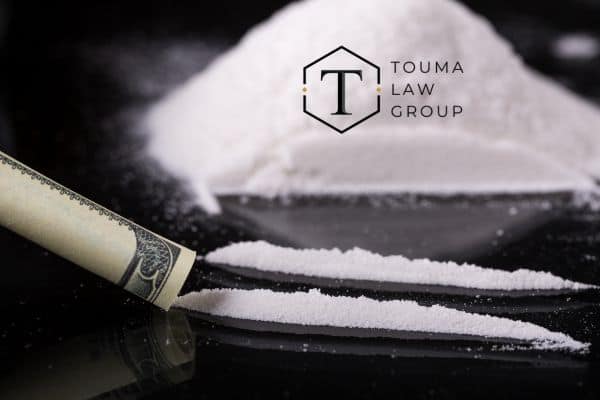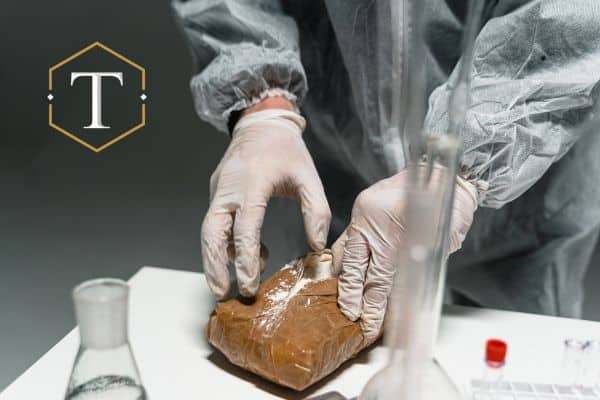One of the most serious drug-related offenses someone can face is trafficking. According to the U.S. Department of Justice, the illegal manufacture and distribution of drugs account for approximately 20 percent of all drug crimes in the country.
A conviction for federal drug crimes can lead to expensive fines and lengthy jail time, as well as a limited career path due to a criminal record. If you've been charged with a serious federal crime, or if you're under investigation for drug trafficking, your need to act quickly. Contact Touma Law Group today to schedule a free consultation and discuss your case with an experienced drug charge lawyer in Greenville.

How Trafficking is Defined
Drug trafficking, by definition, is the transporting, importing, or distribution of drugs. Trafficking of drugs is both a federal and felony crime and carries heavy jail time. Unlike the name suggests, trafficking does not strictly mean moving illicit substances across state lines. In South Carolina, trafficking means that the defendant possessed a number of drugs, in this case, cocaine, that exceeds the legal threshold weight.
These drug trafficking charges can be based on possession, conspiracy, or constructive possession. Law enforcement in South Carolina takes trafficking very seriously, so it is important to understand both drug laws and the legal ramifications of carrying any amount of cocaine. Substantial jail time is to be expected in the event of cocaine trafficking.
Penalties for Trafficking Cocaine in South Carolina
South Carolina's cocaine trafficking charges are dependent on the amount of cocaine found in someone's possession, and can also be charged on the grounds of conspiracy. In South Carolina, drug trafficking crimes are taken very seriously, and are considered the most serious type of drug crime.

Cocaine trafficking charges include possession of a cocaine base, possession of cocaine, distribution of cocaine, and cocaine in salt form. The amount and charges are as follows:
- The first offense of 10-28 grams of cocaine: carries a mandatory minimum sentence of three years and up to ten years.
- Second offense 10-28 grams: carries a mandatory minimum sentence of five years and up to thirty years.
- Third offense 10-28 grams: carries a mandatory minimum sentence of twenty-five years and up to thirty years.
- First offense 28-100 grams of cocaine: carries a mandatory minimum sentence of seven years and up to twenty-five years.
- Second offense 28-100 grams: carries a mandatory minimum sentence of seven years and up to thirty years.
- Third offense 28-100 grams: carries a mandatory minimum sentence of twenty-five and up to thirty years.
- 100-200 grams carries a mandatory sentence of twenty-five years.
- 200-400 grams carries a mandatory sentence of twenty-five years.
- 400+ grams carries a mandatory sentence of twenty-five years, but up to thirty years.
The first offense for possession of cocaine, cocaine base, alkaloidal cocaine, and cocaine salt carries a fine of $5,000 in conjunction with jail time. This is considered a misdemeanor.
A second offense for possession of cocaine, cocaine base, alkaloidal cocaine, and cocaine salt carries a fine of $7,500 in conjunction with jail time. This is a felony in South Carolina.
The third offense for possession and trafficking is a felony and carries a fine of $12,500 in conjunction with jail time.
These charges are often categorized as violent and are almost always no parole offenses. If someone is convicted they will likely serve most, if not all, of their sentence. These criminal penalties can increase based on the weight of the drugs, and if the individual has prior drug charges. Fines are also carried throughout the convictions, and some drug convictions carry a fine of up to $200,000.

Charges for possession with intent to distribute carries different penalties than possession charges. Law enforcement has to catch an individual in the process of selling in order to charge someone with PWID, and this is usually done by utilizing undercover officers.
Can You Beat a Trafficking Charge?
Trafficking is always a felony drug offense in South Carolina. These charges are treated the same as other felonies as far as an indictment is concerned. Officers will thoroughly conduct their investigation, and if the investigation yields evidence that you are guilty of cocaine crimes and trafficking, you will be indicted. A prosecutor will decide if legal charges need to be pursued, and the defendant will then go through the court system. In the event that this scenario is a state criminal case, a representative from the state solicitor's office will make the final call. If it is a federal drug trafficking offense, a US district attorney has the final say.
However, like any other criminal charge, trafficking is not a guaranteed conviction. Experienced criminal defense attorneys and criminal defense lawyers at Touma Law Group will explain your charges to you, and what they could potentially mean for you in the long term. This could mean taking education classes, giving you education credits, fines, community service, probation, or a jail sentence.
All of this will depend on the evidence gathered and presented to the prosecution. The professionals at Touma Law Group are knowledgeable on these matters and will fight to help you beat the charges looming in front of you. You can schedule a no-obligation consultation with a drug crime attorney today by calling 864-618-2323.



